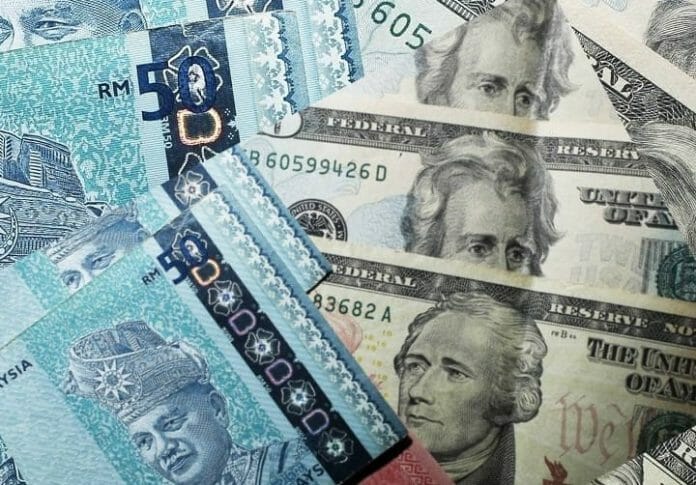The Ringgit opened marginally higher against the US dollar on Wednesday as risk sentiment remained elevated amid anticipation of a Federal Reserve interest rate reduction in March next year, said an analyst.
At 9.05am, the ringgit edged up to 4.6315/6380 against the greenback from Tuesday’s close of 4.6340/6435.
Bank Muamalat Malaysia Bhd chief economist Mohd Afzanizam Abdul Rashid said the ringgit appreciated versus the US dollar to as high as RM4.6088 in the morning but weakened during the afternoon session to around RM4.6320.
It was reported that the dollar hovered near five-month lows following softer US inflation data, which saw the US Personal Consumption Expenditures (PCE) and Core PCE inflation which has fallen to 2.6 per cent and 3.2 per cent.
Mohd Afzanizam told Bernama that the inflation data suggests that the Fed is on track to achieve its annual inflation target of 2.0 per cent.
“The main question now is whether the soft landing in gross domestic product growth can be achieved in 2024. For now, the base case is that the soft landing can be achieved. Whatever the case may be, the need to raise the Fed Fund Rate further is off the table,” he said.
Meanwhile, the Brent oil prices slipped 0.1 per cent to US$78.79 at the time of writing.
The ringgit also traded mostly lower against a basket of major currencies.
It depreciated against the British pound to 5.8815/8935 from 5.8720/8770 at Friday’s close, slid vis-a-vis the euro to 5.1044/1148 from 5.0915/0959 but was higher against the Japanese yen at 3.2517/2586 from 3.2547/2579 previously.
The local note had also weakened against other Asian currencies.
The ringgit decreased vis-à-vis the Singapore dollar to 3.5005/5082 from 3.4933/4968 at Friday’s close and dropped against the Indonesian rupiah to 299.2/300.0 from 298.7/299.1 previously.
It had also declined against the Thai baht to 13.3962/4310from 13.3509/3706 last week and edged down against the Philippine peso to 8.37/8.39 from 8.35/8.36 previously.









